Physical Education
Physical Education Curriculum Map 2024-2025
The only one who can tell you ‘you can’t win’ is you and you don’t have to listen
Jessica Ennis-Hill
At St George’s Catholic School, we recognise the importance of PE and the role it has to play in promoting long term, healthy lifestyles. The intent of our PE curriculum is to provide all children with high quality PE and sport provision. It is our vision for every pupil to succeed and develop both personally and collectively achieving their potential as well as learning how to lead physically active lifestyles.
We strive to inspire our pupils through fun and engaging PE lessons that are enjoyable, challenging and accessible to all. We want our pupils to appreciate the benefits of a healthy and physically active lifestyle.
Through our teaching of PE, we will provide opportunities for pupils to develop values and transferable life skills such as fairness and respect as well as providing them with opportunities to take part in competitive sport. Our students are also encouraged to nurture personal skills such a resilience, tolerance, and teamwork through the vehicle of sport.
Want to find out more?
If you wish to find out more about PE at St George’s please feel free to contact Mr. L Cawdery at l.cawdery@stgeorgesrc.org











